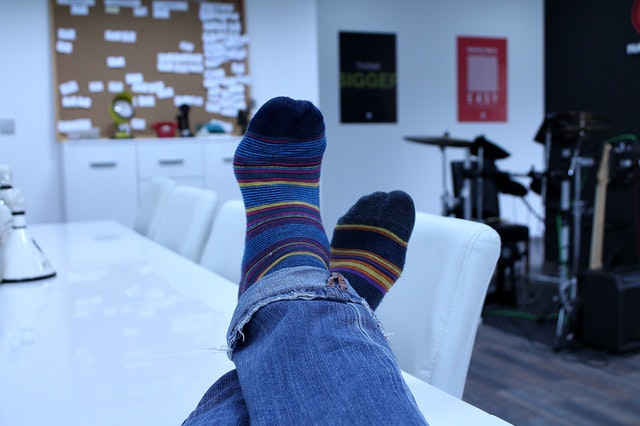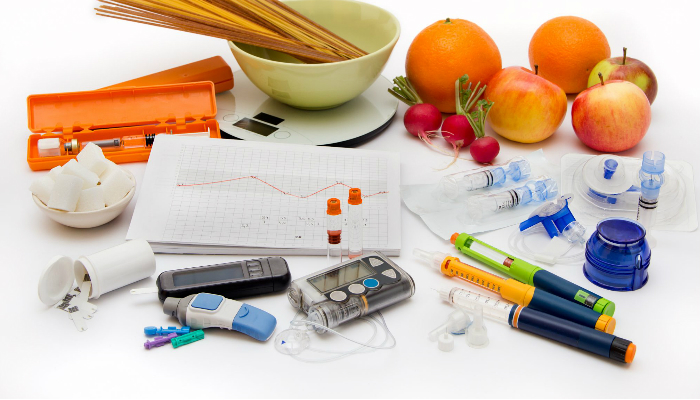
Hearing that one of your loved ones has been diagnosed with diabetes can be a lot to take in. This whole situation becomes more complicated if they are not able to take care of themselves 100 percent of the time, and you are already acting as their caregiver. While many people with diabetes can handle most or all of their diabetes management on their own, the lifestyle changes a diagnosis necessitates often end up impacting the family anyway. Here are seven tips for taking care of someone with diabetes:
Educate yourself about diabetes.
Becoming a caregiver for someone with diabetes will involve a learning curve as you educate yourself about the disease. Get to know the exact type of diabetes that they have as well as their doctor’s recommended course of treatment. Every person with diabetes is unique and no two treatment plans are the same, so you need to familiarize yourself with the specifics of your loved one’s situation. There are also different types of diabetes, so you need to know which one your loved one has so you can care for them properly.
Make lifestyle changes together.
Often one of the hardest things for diabetics to do is make overarching lifestyle changes such as completely overhauling their diet or starting an exercise routine for the first time. Many people find this more difficult than remembering to take a pill at a certain time every day or testing their blood glucose often — and it’s even harder if they have to do it alone. Making healthier lifestyle changes together with your loved ones can help reduce those feelings of isolation and help keep them accountable. After all, it’s much harder to fall off the wagon of eating healthy and exercising when you have someone who’s doing it with you.
Remind them to stay on top of monitoring their glucose.
Most diabetics are able to monitor their glucose by themselves and take medications when necessary, but some of them may need reminders or assistance. Ideally, they should keep a log of when and what they last ate, what their blood sugar readings were when they took their medications and what dosages they took, and the details of any exercises they have done. This will help you spot trends over time and alert you to any changes that you need to let the doctor know about. If your loved one is not capable of keeping such a log themselves, then you might need to step in and do it for them.
Source: Proxima Studio / Shutterstock.com
Help them with personal grooming.
Due to a condition called diabetic neuropathy, some people with diabetes have trouble noticing cuts, bruises, scrapes, ulcers, sores and other potential health issues. Thus, proper grooming is of paramount importance so that you can spot these issues with a visual check. This means carefully cutting their toenails, completely drying their feet after a bath, and brushing their teeth after every meal. If your loved one is not capable of doing all this themselves, then you may need to help them with these daily grooming tasks to ensure that they are staying healthy.
Choose shoes wisely.
Diabetics need to wear shoes at all times, even inside the house, to protect their feet in case of diabetic neuropathy. They should also avoid sandals and instead choose closed-toe, closed-heel shoes that will surround their feet in protection. Ideally, they should be made of soft leather or another material that will move with their foot rather than rubbing and chafing, and the soles should be cushioned and offer good support. Many diabetics also struggle with lower body edema, so you might need to seek out extra wide men’s shoes for swollen feet. If your loved one is not used to wearing shoes inside the house, you may need to remind them often to help them to build the habit or help them choose the appropriate shoes. If you also start wearing shoes inside the house, that will also help to reinforce the habit.
Source: goffkein.pro / Shutterstock.com
Don’t forget about clothes.
Shoes get a lot of attention when it comes to diabetes, but clothing is equally important. Look for adaptive clothing with low-profile seams — or better yet, seamless construction — to reduce the chances of bedsores. You should also seek out clothing that allows your loved ones to carry insulin pumps or easily inject themselves if the need arises. Many adaptive clothing designs include medical ports for these sorts of purposes. If your loved one struggles with restrictive clothing, loose styles such as house dresses for seniors can reduce pressure on their skin while making it easy to push the fabric out of the way to administer an injection.
Support their de-stressing strategies.
Stress changes the way that your body processes insulin. That’s because two of the main hormones released during a stress response — cortisol and adrenaline — make it harder for your natural insulin to work, creating insulin resistance. This means that managing stress is very important for people with diabetes and the people who take care of them. Help your loved one figure out what de-stressing works for them, whether it’s going for a long, sweaty run, soaking in a hot bath, or meditating to chants. Also, do what you can to remove potential stressors from their life. For example, take on chores that they really hate or say “no” to social events that neither of you really wants to go to anyway.
Adjusting to a diabetes diagnosis requires a lot of change, but it will make a huge difference in your loved one’s quality of life and will make their disease much easier to manage. What other tips do you have for caring for a loved one with diabetes? Let us know in the comments below!
Ft img Source: Minerva Studio / Shutterstock.com





